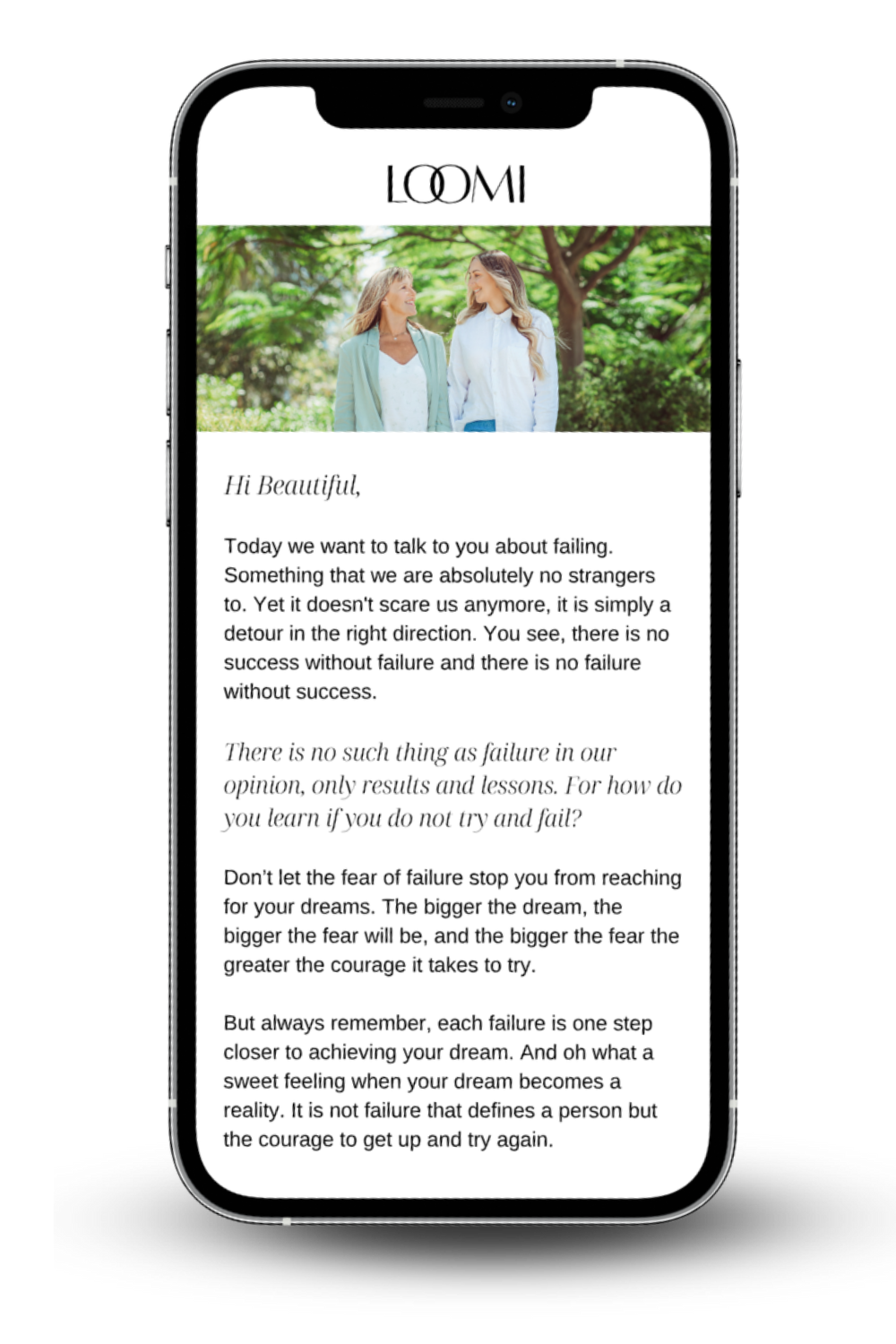The Power of Not Taking Things Personally
The Power of Not Taking Things Personally
Do you get defensive when someone makes a comment or even a general observation about you? Are you constantly internalising criticism, taking every little comment to heart?
When someone cuts you off in traffic or at the supermarket do you take it personally, getting angry, indignant or frustrated?
Or do you feel guilty or hurt when someone lashes out at you for something you unintentionally did that irritated them?
In our daily interactions, we often find ourselves affected by the opinions and actions of others. However, according to Don Miguel Ruiz’s profound teachings in his book “The Four Agreements” there is a powerful agreement we can make with ourselves to reclaim our emotional freedom: not taking things personally.
It’s only normal that we want to make a good impression on family, friends, and even strangers. We are social beings, and as such need to belong and be accepted. At a young age we are taught to be kind, to be nice, and to put others’ wants and needs before our own. Then before you know it, we are judging our self-worth based on how we make others feel and their opinion of us.
So, it makes sense that if someone has an opinion or does something to us that is negative or critical, we will take it personally. When we receive negative feedback, opinions or behavior toward us, we perceive it as rejection.
However, you see, nothing others say or do is actually about us. People’s actions and words are a projection of their own beliefs, perspectives, and emotions. When someone criticises or judges us, it’s a reflection of their own insecurities and inner issues, not a true reflection of our worth, and the sooner you realise that, the sooner you’ll attain emotional freedom.
Why Do We Take Things Personally?
Our tendency to take things personally often arises from assumptions we make about what others think of us. These assumptions are often based on our own fears, self-judgment, and a deep-rooted need for validation, resulting in a distorted perception of reality.
By internalising these assumptions, we allow ourselves to be affected by the opinions of others, leading to emotional pain and suffering. We allow the perception of others to define our self-worth.
So, what causes us to take things personally?
Ego
The ego seeks to defend and protect our perception of who we are. If something happens that challenges or contradicts our self-perception, it can perceive a threat, causing you to react defensively, taking things personally
Low Self-Esteem and Negative Self-Talk
When we have low self-esteem, we tend to perceive ourselves in a negative light. We engage in negative self-talk, internalising self-criticism, and doubting our own self-worth. We take things personally because we inherently believe we are unworthy and deserving of a personal attack.
Hypersensitivity
A hypersensitive or oversensitive person tends to experience heightened sensitivity towards external stimuli, such as comments and actions that are perceived as negative. They may overanalyze, magnify the significance of such situations, and defensively take things personally.
Childhood Trauma
A person who carries the burden of childhood trauma is likely to be triggered by the even slightest and seemingly inconsequential comment. These triggers can bring forth deep-seated emotions, reinforcing negative self-beliefs.
Stress or Fatigue
When stressed or emotionally exhausted our heightened emotional sensitivity can lead us to react more strongly to comments or actions, perceiving them as personal attacks. The most benign comment is amplified, over analysed, and taken personally.
By becoming aware of these patterns, we can challenge their validity and detach ourselves from the opinions of others. We understand our reactions and realise that we have the power to choose how we interpret their words and actions.
So how do we break free from the cycle of taking things personally?

The Art of Not Taking Things Personally
Not taking things personally stems from the understanding that what others say and do is a projection of their own reality. People’s actions and words are shaped by their beliefs, experiences, and emotional state. When we internalise their criticisms or judgments, we allow their perception to define our self-worth. Instead, we should recognise that their behaviour is not about us, but rather their own underlying insecurities and struggles.
It’s important to understand that each person perceives the world through their own unique lens. Their beliefs, values, and experiences shape their opinions and reactions. When someone criticises or judges you, it’s crucial to remember that their words are coloured by their own inner world. But by separating their perceptions from yours, you can free yourself from the weight of their judgment.
The key to not taking things personally is self-awareness. By observing your thoughts, emotions, and reactions you can break free from taking things personally, building coping mechanisms, cultivating self-confidence, and fostering emotional resilience.
I hear you, Easier said than done, right? I know, but believe me, with time, practice, and patience you can change your thoughts and your story. This self-awareness becomes a shield against external judgments, enabling you to stay rooted in your truth. You will be able to break the habit of taking things personally.
Here are some strategies to help you:
Understand Your Triggers
Pay attention to what triggers you to take things personally. Only by understanding your triggers, will you be able to work on not taking things personally.
Is it a specific person whose opinions hold significance for you? Do certain situations or comments make you feel vulnerable or personally attacked? Reflect on how these triggers make you feel and why they affect you. Is your ego being challenged? Does your sense of self-worth rely on the opinion of others? Are you seeking external validation instead of relying on your own judgment and self-confidence? Or are you just generally insecure because of deep-rooted beliefs from your past?
When you understand your triggers and the underlying reason you can start to work on not taking things personally. This self-awareness gives you the power to respond more objectively, develop a stronger sense of self, and reduce the impact of others’ opinions.
Practice Empathy and Compassion
When you understand that others’ behaviour is a reflection of their own inner world, you can respond with empathy and compassion. Everyone carries their own burdens and struggles, and their words may be an expression of their pain rather than an accurate assessment of who you are. By extending kindness and understanding, you break the cycle of personalisation and foster healthier connections with others.
Practicing empathy and compassion allows you to see beyond the surface-level interactions. Instead of reacting defensively to criticism or judgment, you can consider the possible underlying reasons for the other person’s behavior. Empathy enables you to step into their shoes and understand that their actions are often rooted in their own insecurities, past experiences, or emotional wounds.
Let It Go
“Let It Go” Three simple words that hold so much power.
When you encounter situations that trigger you to take it personally, ask yourself, is it really worth it? Are the comments of others really your truth? Do they deserve the power to affect your self-worth? Is the road rage of a perfect stranger worth ruining your inner peace? You don’t know their circumstances or how their day is going, so don’t assume it’s all about you, and certainly don’t take on their rage.
Take back your power and choose your reaction, free yourself from unnecessary stress and negativity. Focus on what really matters to your well-being and inner peace.
Cut out the Negative Self-Talk
Your internal dialogue is with you every moment of every day and affects the way you perceive yourself and the world around you. So, instead of beating yourself up or assuming the worst of every situation, practice self-compassion and self-love. When you catch yourself engaging in negative self-talk, make a conscious effort to interrupt and replace your thoughts with more positive and constructive ones. Focus on your positive qualities and remember that you are worthy, and you matter.
Cutting negative self-talk takes practice and patience, but as you learn to treat yourself better and gain self-confidence your need for constant external validation becomes a thing of the past.
Check Your Ego
A healthy sense of pride is critical for self-worth and self-respect. It is an authentic sense of self-esteem that comes from positive self-image and confidence.
Your ego on the other hand attaches itself to your sense of self-worth, relying on the opinion of others to validate you. You feel you are always right and get defensive when challenged. If unchecked, your pride can slip into ego if it becomes excessive or is based on comparisons.
By becoming aware of and checking your ego, you can gain a better understanding of how it shapes your reactions and judgments. When confronted with a situation that triggers you, ask yourself if your ego is feeling threatened, seeking validation, or fueling a defensive reaction.
By recognising these moments, you can choose to detach from them and respond with objectivity and emotional calm. Embrace the idea that you don’t have all the answers, and that there is room for growth. Proactively listen to other perspectives, even if it challenges your own beliefs.
What are the Benefits of Not Taking Things Personally?
Not taking things personally has many benefits to your overall well-being and relationships.
When you don’t take things personally you cultivate emotional resilience. You are better equipped to handle criticism and negative comments without letting them affect your self-esteem and confidence. Your newfound emotional resilience allows you to bounce back from what would once have sent you into an emotional meltdown.
By learning how to not take things personally you improve your self-confidence. You rely less on the validation of others and develop a strong sense of self-worth. By acknowledging your inherent worthiness, independent of external validation, you reclaim your power and feel a greater sense of self-assuredness. You can stand firm in your authenticity, knowing that you are enough as you are. Stress and anxiety are reduced because you are no longer seeking approval or fearing judgment. You let go of worrying about what others think.
Remember, not taking things personally doesn’t mean ignoring or disregarding valid feedback. It means not internalising or overreacting to every comment or situation. You can maintain a balanced perspective, understanding that you have control over how you choose to respond to situations. You can navigate life’s challenges with a healthier perspective, leading to a more fulfilling and harmonious existence, and without compromising your emotional well-being.
It takes time, practice, self-compassion, and patience.
But it is oh so worth it!
LOOMI letter
Get the good stuff delivered directly to your inbox

LOOMI letter